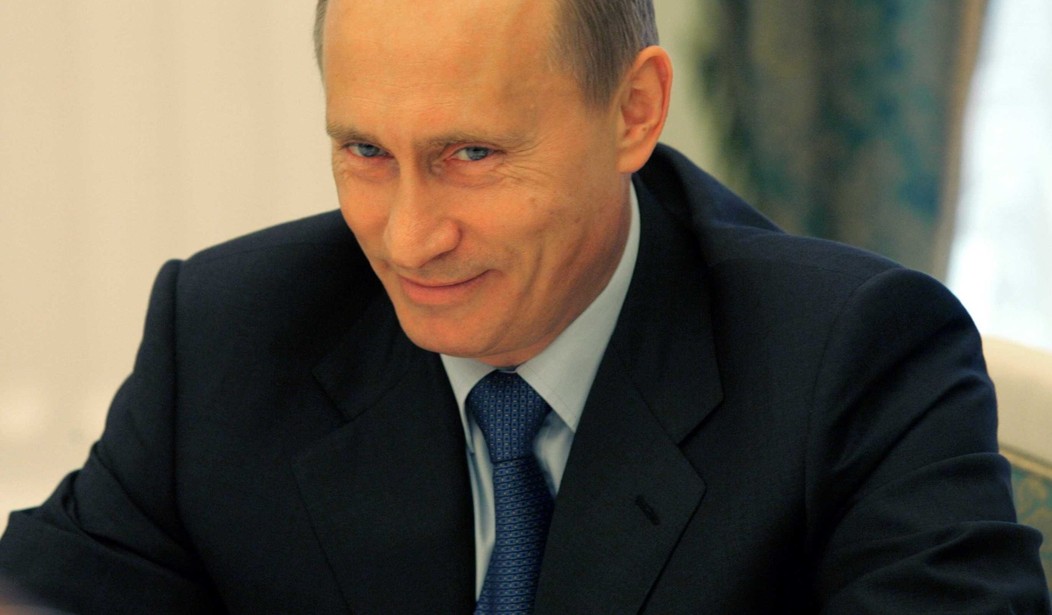Why are the Russians flying many of their warplanes out of Syria? Are they short of cash? Do they need the planes for some other nefarious scheme, or is this some sort of deception? After all, they are maintaining both an air base and a military port in Syria, so perhaps they are just changing tactics — a hypothesis supported by the recent arrival of attack helicopters.
The Russian move seems to have surprised most everyone, including their Iranian partners. This is a big deal, because the Russians’ invasion of Syria was in response to an Iranian request for help.
The Iranians are committed to saving the Assad regime, have sent thousands of fighters and lots of weapons to shore him up, and have lost many officers and foot soldiers fighting on his behalf, but they failed to stabilize him. Indeed, they were losing.
So last summer, General Qassem Suleimani, commander of the IRGC’s Quds Force, personally flew to Moscow (brazenly violating sanctions) to ask Putin for support — and the Russian agreed. As everyone knows, Putin claimed to be saving the world from the Islamic State. However, for the most part (80% is the usual claim) he bombed the less rabid opposition forces and civilian targets.
Most pundits believed that the Russian intervention greatly helped Assad, and Iranian Supreme Leader Ali Khamenei was encouraged to make a series of remarkable offers to Putin at their last meeting in Tehran. According to a usually reliable source, Khamenei told the Russian he believed Putin was Iran’s “natural strategic partner” since the two shared several vital objectives: increase the price of petroleum, get the West out of the region, reestablish a Russian presence in Iraq, and jointly control several strategic choke points, including Oman, Aden, and East Africa.
Khamenei and Putin commiserated with each other about oil. They were earning about one-fifth the money they were getting 18 months earlier, and Khamenei claimed that if the price didn’t get up into the $70-$80 range, the Iranian economy would collapse in about a year.
Then came the deal offer from Iran: if the Russians joined Iran on a big scale, Tehran would cover the Kremlin’s Middle Eastern expenses up to $5 billion per year, starting April 1. Details would be managed, as always, by Ali Bagheri, Iran’s point man on everything Russian.
Putin was certainly impressed; the question is whether he wants that sort of relationship with the ayatollahs. He’s got problems with radical Islamists on his borders, long supported by Tehran, and Khamenei’s help would be welcome in the ‘stans. On the other hand, what’s an Iran deal worth? The economy is a mess, even with Obama’s gifts. The banks are pretty much rupt, the pension funds have been looted, industry is gasping along at roughly one-quarter of capacity, unemployment is about 8 million, and the government owes a cool $21 billion to infrastructure companies.
No wonder the Iranians are the second biggest group of foreign émigrés in Germany.
What kind of ally is that? Shaky, at best. And he knows they’re not great fighters. That’s what got the Russian soldiers and warplanes into Syria in the first place.
Then it turns out the Iranians aren’t content with the Russian S-300 antiaircraft missiles. They want the 400s. And they want cooperation on operations against Israel, which Putin surely doesn’t. Indeed, there are so many rumors about Russian/Israeli/Egyptian/GCC/Saudi joint ventures that I can’t keep track of them all. And next month the Iraqi Kurds will be discussing arms deals in Moscow.
So Putin is hedging his Iranian bet. He says he can send bombers any old time, and he’s keeping his ground and sea bases, so it’s clear that Khamenei did not have advance warning from the Kremlin, and you can be sure he’s cursing out the Russian president as the New Year approaches.
Final point: like Khamenei, Putin knows time is running out on The Wonderful Thing That Happened in Washington (aka the Obama administration). So whatever he wants to get, now is the time. Maybe he’s got plans for those bombers …









Join the conversation as a VIP Member